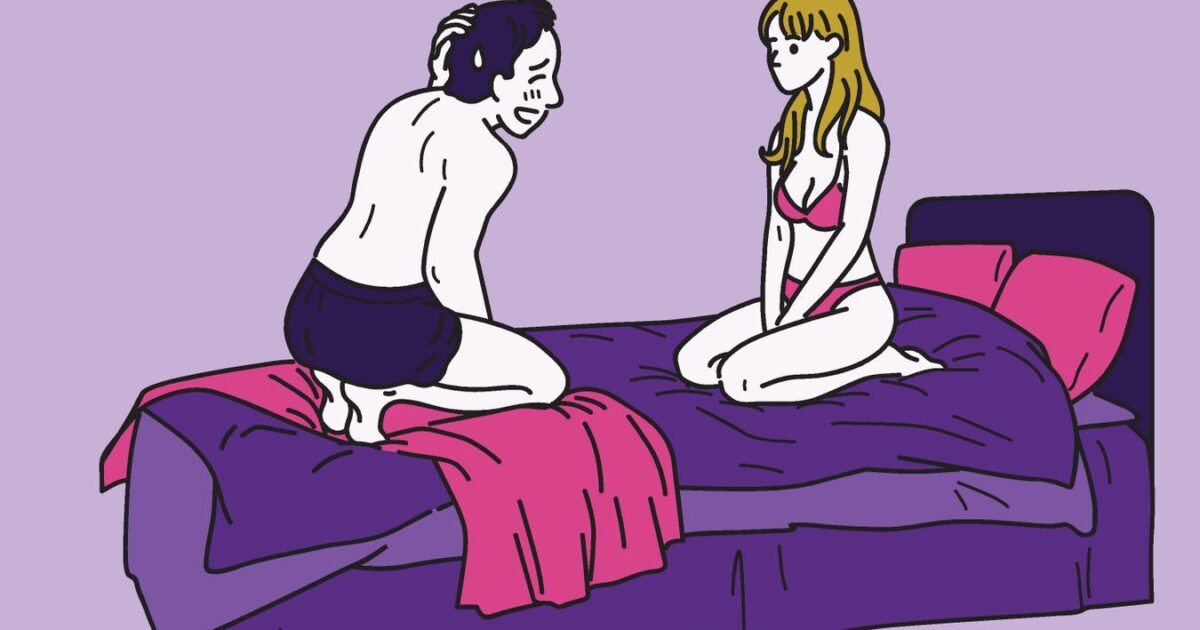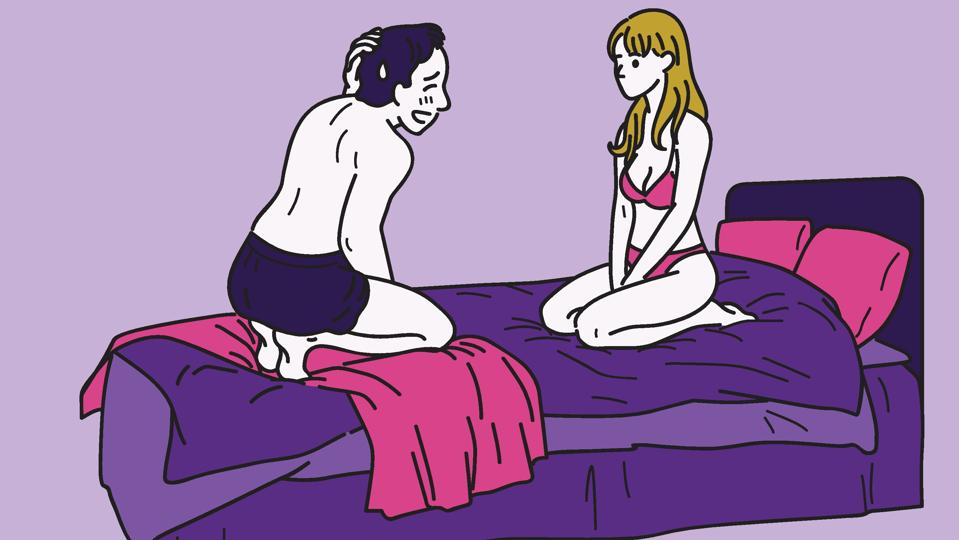2 Subtle Beliefs That Fuel Deep-Rooted Sexual Shame, By A Psychologist

Feeling awkward about sharing details from your last sexual encounter is understandable. But … More
There is a difference between not wanting to talk about sex with your boss and coworkers, and not being willing to talk about sex at all. When you start feeling shame around how you view your body, about masturbation or sex in general, that’s when you need to consider if you have sexual shame.
It all stems from how we’re made to feel about our bodies by those around us. For instance, many of us grew up hearing comments like “You should never touch yourself” or “Don’t ask questions like that” when we tried to understand why we feel a certain way.
Many got shut down by parents who found our words and behavior inappropriate without giving much of an explanation as to why; and that usually became the germ of our personal sexual shame.
Sexual function plays a key role in how satisfied people feel with their lives. It’s influenced by a person’s physical health, emotions, mental wellbeing and their sociocultural setting. However, research published in Scientific Reports in 2023 shows that when you start feeling shameful about this key aspect of your life, it can hurt your mental health, affect your interpersonal relationships negatively and also seep into other areas of your lives.
Sexual shame may also lead to self-hatred, aggressive behavior and in some cases, even sexual addiction. To solve this issue from the ground up, we need to understand what causes it.
Here are two key psychological reasons you may be struggling with sexual shame.
1. You Have Internalized Negative Beliefs About Sex
What’s seen as acceptable and unacceptable in a child’s behavior depends a lot on how the caregivers, likely the parents, interpret it, based on their own cultural and personal values. If caregivers disapprove of how a child expresses themselves physically or emotionally, that disapproval is often expressed through shaming, which can deeply impact the child’s understanding of their body and desires.
From a young age, many of us are taught that sex is taboo, dirty or even sinful. These messages might not be stated outright. They could come from a lack of open conversation, subtle body language or moral undertones in how sexuality is portrayed in social institutions and media.
And when we start to view something which is supposed to be normal with disgust, we start internalizing shame for wanting or exhibiting that behavior. For instance, we use the phrase “come out of the closet,” where the closet acts as a metaphor of secrecy and shame around queerness.
Those who are more socially and religiously conservative also tend to wield shame as a social weapon. For example, many communities condemn premarital sex or non-heterosexual relationships as sinful, sowing guilt or shame in people’s minds, that eventually show up even in private fantasies or while engaging in safe and consensual sexual behavior.
Sometimes sexual shame stems from direct interactions as well. For example, someone who expresses their sexual fantasy to their partner may get told off with a “That’s disgusting.”
Anytime your partner conveys disinterest, your family shames you for your sexual identity or you experience sexual trauma, you start to link these experiences to humiliation and fear. As a result, you may begin to avoid sexual intimacy altogether or approach it with anxiety and self-doubt.
2. You Feel The Pressure To Be Perfect In The Bedroom All The Time
Given the proliferation of pornography in the media, it becomes difficult not to compare ourselves to what we see online. We start to believe what we see and hear, and assume that we have to be perfect at sex. This is the pressure to meet unrealistic standards of sexual performance, appearance or behavior and is called “sexual perfectionism.”
Sexual perfectionism may stem from your beliefs about your performance, how you perceive your partner evaluates your “performance” or from cultural ideals of beauty and media depictions of “perfect” sex or bodies.
A 2016 study published in the Archives of Sexual Behavior found that when women felt their partner expected them to be perfect in bed, their sexual confidence dropped and their sex drive got worse over time.
When women set their own standards for their performance, it didn’t harm their sexual health. But when they believed their partner expected perfection, it led to negative outcomes like lower sexual desire, less arousal, difficulty with orgasm and even pain during sex.
This shows how sexual shame not only leads us to have harmful thoughts, but it even manifests itself in the way our bodies respond. It may prevent you from enjoying sex or may lead you to feel uncomfortable in places like locker rooms and changing rooms. And before you know it, it can start impacting your everyday interactions, where even simple reminders of anything sex-related leave you feeling deeply embarrassed.
Overcoming sexual shame is possible when you start looking for the root causes and actively work toward understanding and accepting your sexual self.
You can start by educating yourself about sexuality, slowly learning to become comfortable with your body and opening up about these feelings with trusted, non-judgmental people in your life.
Once you take a step back and view your experience through a broader cultural lens, you will start to feel the relief that you were never the problem at all. It was always more about what you had learned and internalized over time.
Do you experience heightened anxiety around sex? Take this science-backed test to find out: Sex Anxiety Inventory

